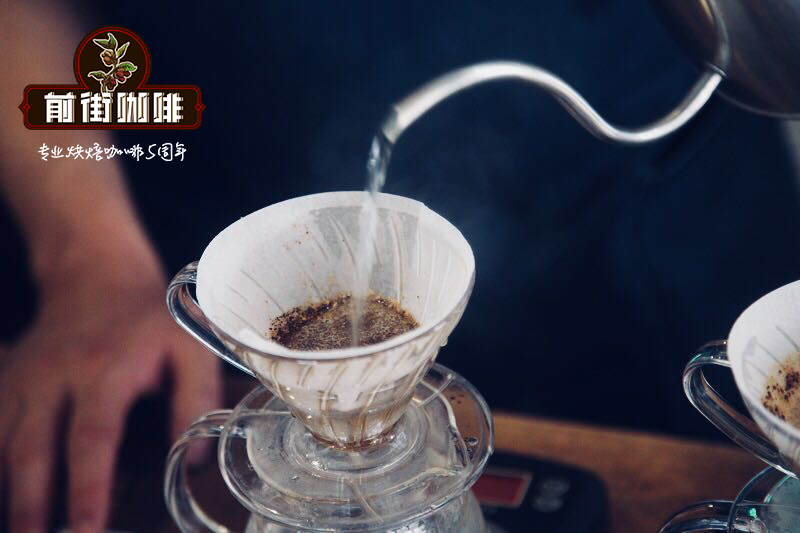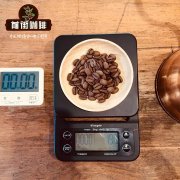Kenya Muchana Manor Coffee can you introduce Kenya Muchana Manor Coffee?

Professional coffee knowledge exchange more coffee bean information please follow the coffee workshop (Wechat official account cafe_style)
After the second World War, the situation in the far East remained unstable and the future of foreign investment was quite uncertain. A French group with a large stake in Malaysian palm oil and rubber plantations has decided to seek agricultural investment in East Africa to guard against adverse developments in Asia.
In February 1950, they sent their agent, Mr. Jas Nicoll, to East Africa with a sizeable checkbook and a large commission (any country and almost any crop). He soon concluded that investing in coffee plantations in Kenya was the answer to his pursuit.
A few months later, he successfully founded a company (Socfinaf) and acquired the first coffee farm in April 1950. This is Ngway Manor (619 acres with 200 acres of coffee). Describing the real estate he described to his colleagues in Malaysia, we read: "N & # 39 X Gewe means' Little Paradise 'should be, as it is a Rantau Panjang replica of the Maison des Palmes White Highland style: orchids are only replaced by roses and carnations, forest flames are in full bloom with mahogany and wood flooring Seala instead of Changai, while the Bukit Fraser area is covered with snow on Mount Kenya."
In May of the same year, Jas Nicoll acquired neighboring Mchana property. Muchana has 1090 acres, of which 659 acres are coffee fields, making it one of the largest estates in Kenya. However, he did not stop there. In January 1951, he managed to buy two other properties near Mchana and Ngai. Added Kiki real estate (412acres, 100acres under coffee) and Mukuyu real estate (325acres, 136acres under coffee).
The four properties are reorganized into a single entity called Mchana (because it is the largest of the four units). By doing so, Mchana Manor becomes the largest single coffee plantation in Kenya and is in "full bearing". In 1950, the newly established Socfinaf produced 267 tons (or washed coffee) of the 9700 tons of net coffee (or washed coffee) produced in Kenya that year, and 21 tons of Mbuni (natural coffee). In 1950, the yield per acre was 450 to 500 pounds, while the average yield in Kenya as a whole was 250 pounds.
Mchana Manor
Today's Muchana Manor covers an area of 906 hectares and coffee cultivation area of 458 hectares, almost the same as the original area of coffee grown in 1950, is one of the largest estates in Kenya. However, throughout the second half of the 20th century and the beginning of the 21st century, parts of the farm fell into disrepair and some plots became semi-abandoned. In the 1960s, irrigation systems were installed at the Muchana estate, which allowed the yield to be maintained, but the yield per tree decreased, making it difficult for the farm to produce the best quality previously known.
However, the potential for high quality exists and is part of the farm heritage. There are still 2max 3 trees in Mchana that were planted before Socfinaf's acquisition, most of which were SL28. A small number of Ruiru 11 and K7 have been planted, but most of the varieties are "traditional" SL28 and SL34, known for their huge cup-shaped shapes. In fact, almost from the beginning, the potential for all excellence was there-it just needed a helping hand.
Coffee Management system (CMS) is one of Kenya's most important marketing and agricultural extension services, and the company took over the farm from Socifaf Management at the end of 2017, and they are taking full advantage of this potential. Today, the management of Mchana has been safely handed over to Wan Bengo, who has been working at CMS since 2009. He is an innovative and professional farm manager dedicated to maintaining Muchana's reputation as one of the best wine estates in Kenya, while adding to his reputation as "the best quality". He transformed areas that were underutilized, focusing on processing and post-harvest infrastructure and focusing on staff training.
Wanbango immediately began a transformation campaign: pruning or replacing old trees to ensure a better harvest in a few years' time. He also worked hard to systematize the agricultural management of the farm, dividing the whole farm into different operational "blocks" and planning the activities of each block to ensure that each block was dealt with optimally and appropriately in a timely manner. He implemented crop development charts, tracking the process from flowering to maturity in each block. By tracking the development of cherries in this way, farms can better plan and prepare: from preventive measures to the implementation of harvest and post-harvest activities at the best time. This planning also ensures efficient and lean management, thus freeing up other resources for more pilot practices, such as honey processing projects, which are currently in their infancy.
END
Important Notice :
前街咖啡 FrontStreet Coffee has moved to new addredd:
FrontStreet Coffee Address: 315,Donghua East Road,GuangZhou
Tel:020 38364473
- Prev

Why is the flavor and taste of hand-brewed coffee in Kenya Gakundu Cooperative so sour?
Professional coffee knowledge exchange more coffee bean information please follow the coffee workshop (Wechat official account cafe_style) this batch of AB coffee is produced by many small farmers, they are all members of Gakundufarmersco-co-Society (FCS), responsible for coffee
- Next

Ethiopia's best coffee brand-Arrica sunbathing Yega Chuefei
Professional coffee knowledge exchange more coffee bean information please follow the coffee workshop (Wechat official account cafe_style) front street-Ethiopia Yega Sheffei sun aricha brief introduction Aricha named from Aricha kebele in Ethiopia Yega Sheffei producing area. To the east of Yirgacheffe, there is a village called Aricha kebele
Related
- Beginners will see the "Coffee pull flower" guide!
- What is the difference between ice blog purified milk and ordinary milk coffee?
- Why is the Philippines the largest producer of crops in Liberia?
- For coffee extraction, should the fine powder be retained?
- How does extracted espresso fill pressed powder? How much strength does it take to press the powder?
- How to make jasmine cold extract coffee? Is the jasmine + latte good?
- Will this little toy really make the coffee taste better? How does Lily Drip affect coffee extraction?
- Will the action of slapping the filter cup also affect coffee extraction?
- What's the difference between powder-to-water ratio and powder-to-liquid ratio?
- What is the Ethiopian local species? What does it have to do with Heirloom native species?

